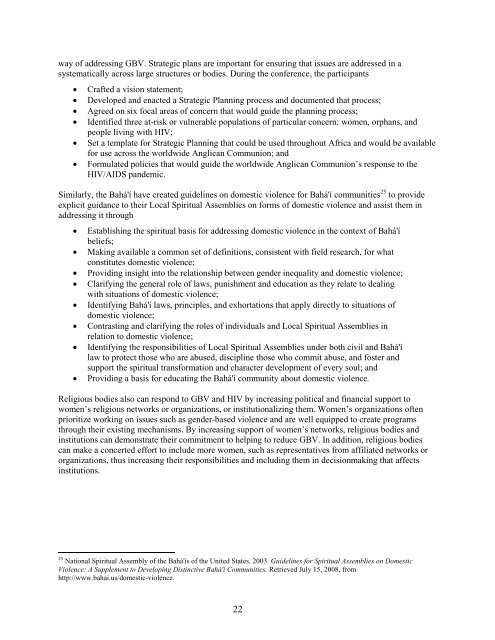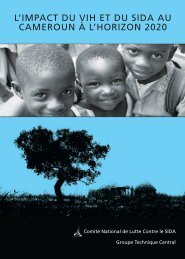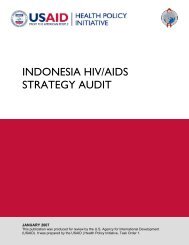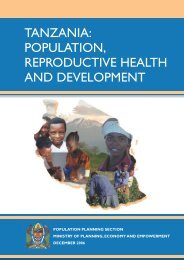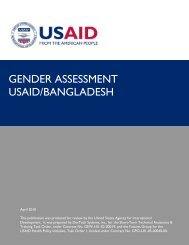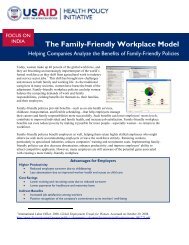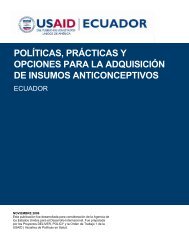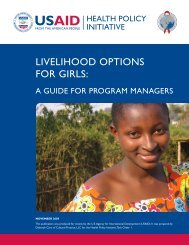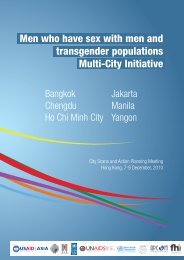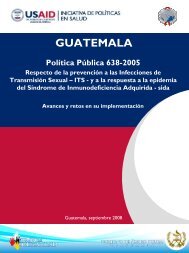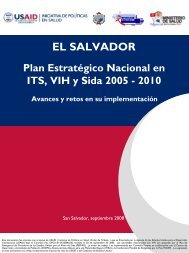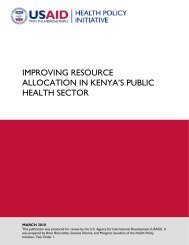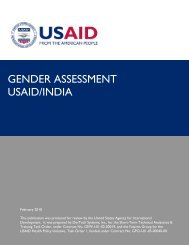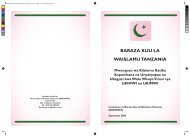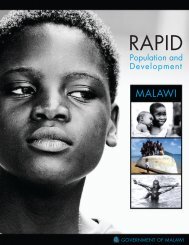A Call to Act - Health Policy Initiative
A Call to Act - Health Policy Initiative
A Call to Act - Health Policy Initiative
Create successful ePaper yourself
Turn your PDF publications into a flip-book with our unique Google optimized e-Paper software.
way of addressing GBV. Strategic plans are important for ensuring that issues are addressed in a<br />
systematically across large structures or bodies. During the conference, the participants<br />
• Crafted a vision statement;<br />
• Developed and enacted a Strategic Planning process and documented that process;<br />
• Agreed on six focal areas of concern that would guide the planning process;<br />
• Identified three at-risk or vulnerable populations of particular concern: women, orphans, and<br />
people living with HIV;<br />
• Set a template for Strategic Planning that could be used throughout Africa and would be available<br />
for use across the worldwide Anglican Communion; and<br />
• Formulated policies that would guide the worldwide Anglican Communion’s response <strong>to</strong> the<br />
HIV/AIDS pandemic.<br />
Similarly, the Bahá'í have created guidelines on domestic violence for Bahá'í communities 25 <strong>to</strong> provide<br />
explicit guidance <strong>to</strong> their Local Spiritual Assemblies on forms of domestic violence and assist them in<br />
addressing it through<br />
• Establishing the spiritual basis for addressing domestic violence in the context of Bahá'í<br />
beliefs;<br />
• Making available a common set of definitions, consistent with field research, for what<br />
constitutes domestic violence;<br />
• Providing insight in<strong>to</strong> the relationship between gender inequality and domestic violence;<br />
• Clarifying the general role of laws, punishment and education as they relate <strong>to</strong> dealing<br />
with situations of domestic violence;<br />
• Identifying Bahá'í laws, principles, and exhortations that apply directly <strong>to</strong> situations of<br />
domestic violence;<br />
• Contrasting and clarifying the roles of individuals and Local Spiritual Assemblies in<br />
relation <strong>to</strong> domestic violence;<br />
• Identifying the responsibilities of Local Spiritual Assemblies under both civil and Bahá'í<br />
law <strong>to</strong> protect those who are abused, discipline those who commit abuse, and foster and<br />
support the spiritual transformation and character development of every soul; and<br />
• Providing a basis for educating the Bahá'í community about domestic violence.<br />
Religious bodies also can respond <strong>to</strong> GBV and HIV by increasing political and financial support <strong>to</strong><br />
women’s religious networks or organizations, or institutionalizing them. Women’s organizations often<br />
prioritize working on issues such as gender-based violence and are well equipped <strong>to</strong> create programs<br />
through their existing mechanisms. By increasing support of women’s networks, religious bodies and<br />
institutions can demonstrate their commitment <strong>to</strong> helping <strong>to</strong> reduce GBV. In addition, religious bodies<br />
can make a concerted effort <strong>to</strong> include more women, such as representatives from affiliated networks or<br />
organizations, thus increasing their responsibilities and including them in decisionmaking that affects<br />
institutions.<br />
25 National Spiritual Assembly of the Bahá'ís of the United States. 2003. Guidelines for Spiritual Assemblies on Domestic<br />
Violence: A Supplement <strong>to</strong> Developing Distinctive Bahá'í Communities. Retrieved July 15, 2008, from<br />
http://www.bahai.us/domestic-violence.<br />
22


